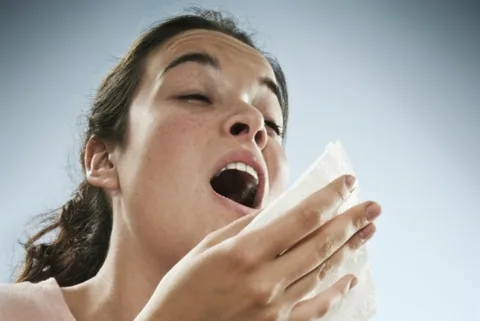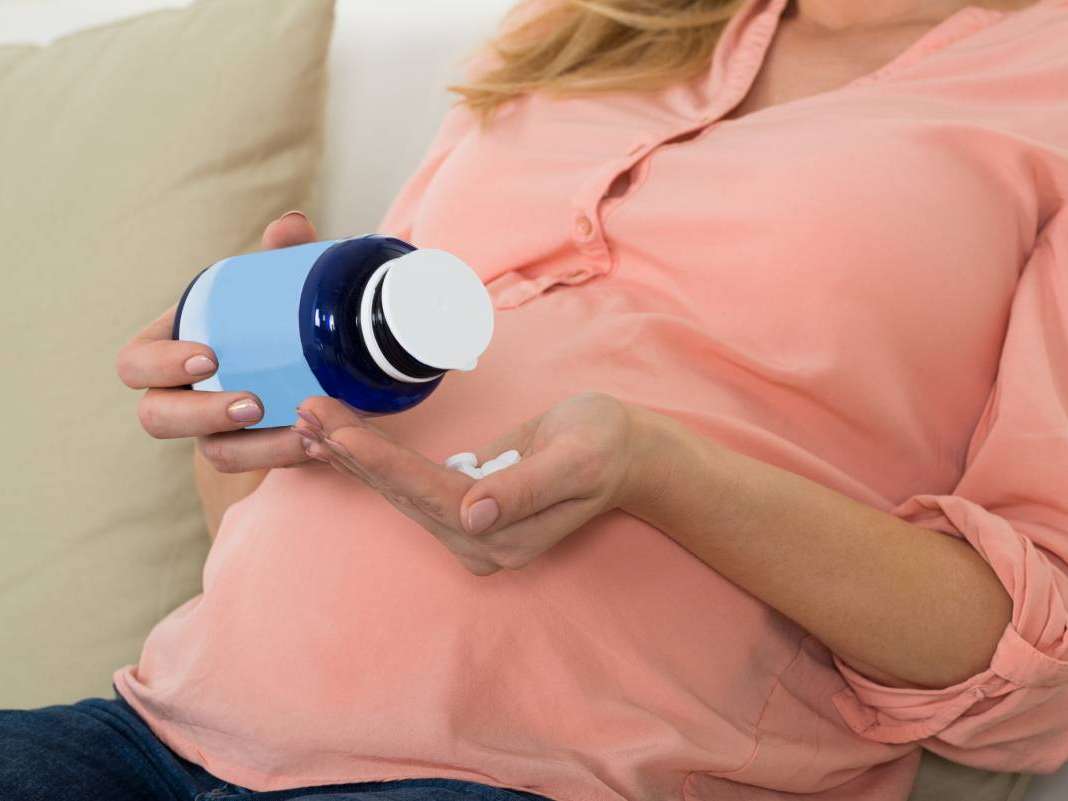One of the less-pleasant joys of pregnancy is not being able to take your usual arsenal of remedies and over-the-counter medications for your ailments.
A spring pregnancy means that you may be experiencing some allergies this time of year. Whether you’re coughing, sneezing, wheezing, suffering from headaches, or experiencing some other type of allergy symptoms — there is hope.
However, you won’t find much of it using store bought medications.
The following natural remedies will help you manage spring allergies during pregnancy.
Pregnancy rhinitis is a condition similar to allergic rhinitis and is quite common among pregnant women — in fact, 20 to 30% of all pregnant women experience this condition to some degree. The difference between pregnancy rhinitis and allergic rhinitis seems to be the cause. Allergic rhinitis is caused by substances such as pollen, dust, pet dander, smoke, pollutants, toxins, etc., while it is not clearly known what causes pregnancy rhinitis. One theory is that hormonal changes during pregnancy cause swelling of the nasal mucosa and excess mucus production. Source
#1 – Saline Solution
If you keep having to blow your nose because it’s overrun with mucus, having trouble breathing, or just can’t seem to keep your nasal passages clear, you should consider getting a nasal saline solution.
Saline solution is just a mix of salt and water:
- You can easily find some at your local pharmacy or large chain grocery store.
- You can also make your own saline solution
- You could also use water that’s distilled, sterile, or previously boiled & cooled.
To use a saline solution to help with your allergies during pregnancy, all you need to do is squirt a few drops of it into each nostril. Then, give it a few seconds to work.
It might be a little easier if you use a Neti Pot. You may notice that your nose is running like crazy — but that’s the goal!
The saline helps to thin out the extra mucus that’s inside of your nose so that you can breathe clearly again.
#2 – Nettle Leaves
The leaves of nettle have been shown to offer many pregnant mamas some allergy symptom relief.
Here’s how to use nettle leaves to help with pregnancy & allergies:
- Nettle Tea – many women like to steep the leaves in some hot water and add a little honey, cream, or sugar before drinking it.
Make sure any nettle tea you drink uses dried leaves, not root (the label should list nettle leaf), and don’t drink too much, especially in the first trimester, because of its stimulating effect on the uterus. However, it is safe to drink throughout the second and third trimesters. Source
- Nettle Supplements – other women like to crush the leaves up and make them into capsules.
To help prevent seasonal allergies or hay fever, two 300 mg nettle leaf capsules or tablets, or a 2 to 4 ml tincture, 3 times per day can be taken during allergy season. For acute attacks, the freeze-dried encapsulated herb can be taken 2 capsules every 5 minutes until symptoms have diminished. For hives, 1 to 2 capsules can be taken every 2 to 4 hours as needed. Source
Regardless of which method you prefer, they are both equally effective.
If you like to drink tea but you’re not a fan of the nettle leaf flavor, you can always add some peppermint or other tasty herbs to give it a better taste. However, if you decide to add herbs other than peppermint, make sure they are herbs that are approved for use during pregnancy.
#3 – Honey
One of the world’s oldest foods and medicines is honey.
It’s reported that if you consume locally produced honey, you can develop an immunity to the local pollen that may be causing your allergies to flare up.
Honey is known for its medicinal properties, and it’s a natural sweetener.
There currently isn’t much scientific evidence available yet about its allergy-fighting properties. But, many people swear by it.
Raw honey is fine to consume during pregnancy (unless you are immuno-compromised or your health professional has advised you not to). It may be a beneficial remedy for allergies or colds during pregnancy that are far safer than OTC drugs. Source
If you love honey and you’re interested in trying something new to combat your allergies, then this may be a great natural home remedy for you.
#4 – Dietary Changes
It’s not uncommon to think that your allergies during pregnancy are the result of something in the environment that you’re exposed to.
Sometimes the offending culprit is in your food.
Did You Know?… Your sensitivity to foods and environmental elements can change every few years.
Your spring allergies may be a sign that you’ve developed an allergy to something you’re eating.
Since you’re pregnant, you may already be scrutinizing what you eat if you suffer from nausea and morning sickness. But you may need to alter your diet a bit more to see if any of the foods that you normally consume are the reasons you are suffering from allergy-like symptoms.
Allergy shots are considered safe for pregnant women, but only for those who had been on the receiving end for a while before conceiving. Most allergists say it’s not a good idea to start allergy shots during pregnancy, because they trigger changes in your already-fluctuating immune system and may cause unexpected reactions. Source
My Experience With Allergies During Pregnancy
During my last pregnancy, I had a stuffy nose all the time and excruciating headaches.
The only way I was able to get relief was to drink more water. (I didn’t always drink enough water on my own.)
I also found that peppermint tea and honey helped to stop my headaches, made me feel less hungry, and even made my nose feel less stuffy.
Natural remedies may not work for everyone. You may need to experiment with different ones until you find a combination that works best for you.
Must read: Can Allergy Medications Safely Be Used During Pregnancy?
I’m a stay-at-home mom and writer. Having experienced the joys and discomforts of pregnancy 3 times, I have a lot of advice to offer expecting mothers. I’m committed to providing new moms with an in-depth and honest view on pregnancy, so you’ll have a better idea of what to expect and a good feel for what pregnancy is really like.





